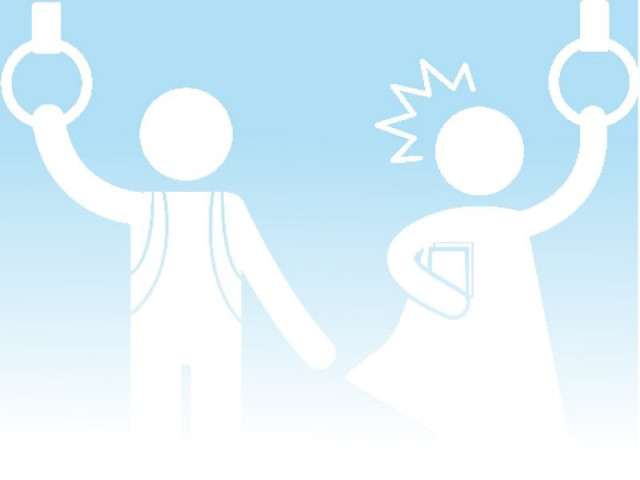Sexual harassment committees: ‘Cases not acknowledged for fear of tainted reputations’
In contrast, a PU teacher believes committees have a purpose.

In contrast, a PU teacher believes
committees have a purpose. DESIGN: MUHAMMAD SUHAIB / SAMRA AAMIR
There is a tendency in educational institutes to cover-up reported incidents of sexual harassment.
This is how Saiqa Rani sees the situation. Rani was the coordinator of the Bargad project Youth for Women Leadership on Campuses. She has been working with the NGO for 12 years.
While awareness has largely increased, Rani believes the on ground situation hasn’t much improved largely because of the ineffectiveness of inquiry committees and reluctance of university administrations to acknowledge such cases.
Based on personal accounts that students shared with Bargad, Rani claims that most of the students hesitated to even report harassment. Those who did, she says, were asked to keep silent. In her opinion, administrations feared that the reputation of their institutes would be ‘tainted’ once such cases are acknowledged and investigated. There is a huge gap between what administration of educational institutes claim to do to curb sexual harassment and what is actually being done, she says.

“[Even] senior female faculty members said that we were introducing ‘westernisation’ and ‘modernisation’ on campuses by talking about harassment,” she recalls about the time when Bargad started taking up the issue.
According to HEC policy guidelines against sexual harassment at institutions of higher learning, every educational institute has to have a committee to investigate such complaints. They also require that at least one woman be a member. Under the guidelines, levelling false allegations is considered a serious offence, which can result in severe disciplinary action.

According to the 2011 Bargad survey, as many as 33 per cent of the respondents were unaware that their institutes had a policy and committees to deal with harassment complaints. Almost 48 per cent considered such mechanisms were present on the campus while another 19 per cent considered them to be absent on the campus.
Rani ranks the performance of committees on campuses as “poor”. The reason why she rates them so is because “Committees for sexual harassments are randomly formulated with members largely unaware of what their responsibilities exactly are.”

Prof Dr Rukhsana Kausar, who is a member of the Punjab University committee against sexual harassment, believes that such committees are effective. “[T]he committees have been formed for a purpose and as far as our committee is concerned we are very well aware of our responsibilities,” is how she responds to a question regarding efficacy of such bodies.
The three-member committee – with two men and a woman – at the PU was formed almost six months ago.

Dr Kausar, who is also the chairperson of the applied psychology department at the varsity, believes that it is very important that a woman is on a harassment committee, especially one that investigates harassment against women.
She declined to comment on the number of cases the committee had investigated and their outcomes.
She feels that the trickiest part, when dealing with sexual harassment complaints, is to determine the veracity of the allegations. Ensuring that there is no attempt to falsely accuse or malign someone is very important, she explains. “If [that] is found to be [the case] we are mandated to give out a heavy penalty,” says Dr Kausar.
Published in The Express Tribune, February 19th, 2013.



















COMMENTS
Comments are moderated and generally will be posted if they are on-topic and not abusive.
For more information, please see our Comments FAQ